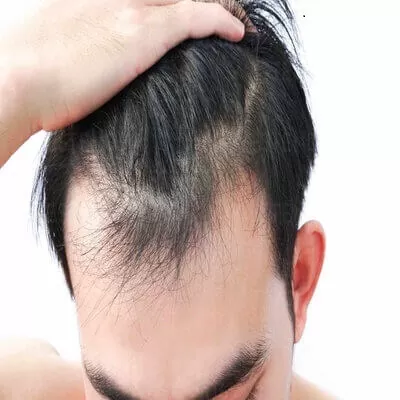
Millions of people worldwide suffer from hair loss; for many, getting a hair transplant is a life-changing response. But one frequently arises topic is whether hair loss can occur following a hair transplant in Islamabad.
In this blog, we will explore the intricacies of hair transplants, debunk myths, and delve into the factors that may contribute to hair loss post-transplant.
The Basics of Hair Transplants:
Hair follicles from one body area—usually the back or sides of the head—are surgically transplanted to the balding or thinning areas to treat hair loss. Follicular unit extraction (FUE) and transplantation (FUT) are the main techniques. FUE collects individual follicular units directly, whereas FUT entails removing a strip of skin containing hair follicles.
The Growth Process:
After a hair transplant, patients eagerly anticipate the growth of new hair. The transplanted hair initially sheds within the first few weeks, but this is a normal part of the process. The dormant hair follicles then enter a resting phase before gradually starting to regrow. It’s essential to note that the timeline for visible results varies among individuals, with some seeing improvements in a few months while others may take up to a year.
Common Misconceptions:
Assuming Immediate Permanence:
One common misconception is expecting immediate, permanent results. Patience is crucial, as the full effects of a hair transplant may take several months to become apparent. Initial shedding can be disheartening, but it’s essential to trust the process and allow sufficient time for the new hair to grow.
Complete Immunity to Further Hair Loss:
While a hair transplant can significantly improve the appearance of thinning or balding areas, it doesn’t guarantee immunity against future hair loss. Transplanted hair is often taken from areas genetically resistant to the hormone responsible for pattern baldness, providing long-lasting results. However, other factors, such as stress, hormonal changes, or certain medications, can still impact native and transplanted hair.
Exploring the Possibility of Post-Transplant Hair Loss:
Despite the success of a hair transplant, some individuals may notice hair loss in the later stages. Several factors contribute to this phenomenon:
Natural Hair Cycle:
The human hair growth cycle involves three phases: anagen (growth), catagen (transitional), and telogen (resting or shedding). Even after a transplant, the natural hair cycle continues, and some hair follicles may enter the shedding phase. This can lead to the perception of hair loss, but it’s important to differentiate between natural shedding and a regression of transplanted hair.
Genetic Predisposition:
Genetic factors play a pivotal role in hair loss, and while transplanted hair may be genetically resistant to pattern baldness, native hair in other areas may still be susceptible. Individuals with a strong family history of hair loss should be aware that non-transplanted hair may continue to thin over time.
Hormonal Changes:
Hormonal fluctuations, such as ageing, pregnancy, or medical conditions, can influence hair growth. While transplanted hair is generally resistant to hormonal triggers, hormonal changes may affect the native hair surrounding the transplanted area.
Stress and Lifestyle Factors:
Stress, a sedentary lifestyle, poor nutrition, and other environmental factors can impact hair health. Transplanted hair requires the same care and attention as native hair. Neglecting a healthy lifestyle may contribute to the deterioration of existing hair, both transplanted and native.
Managing and Preventing Post-Transplant Hair Loss:
Follow Post-Operative Care Instructions:
Adhering to the post-operative care instructions provided by the surgeon is crucial for ensuring optimal results. This includes proper cleaning, avoiding strenuous activities, and refraining from scratching or picking at the transplant site.
Maintain a Healthy Lifestyle:
Adopting a healthy lifestyle contributes significantly to overall well-being, including hair health. A balanced diet, regular exercise, and stress management can positively impact transplanted and native hair.
Seek Professional Guidance:
If individuals notice significant hair loss post-transplant, consulting with their transplant surgeon at SKN Cosmetic Clinic Islamabad is essential. A thorough examination can help identify the underlying causes and determine the most appropriate action.
All Summed Up!
When it comes to hair transplants, knowing that there may be hair loss in the later phases is important for controlling expectations and getting realistic results. Even though a successful hair transplant can produce excellent results, it’s essential to understand that many factors, including hormone changes and natural hair cycles, can cause post-transplant hair loss.
Ultimately, a comprehensive approach that combines surgical expertise with ongoing self-care is key to achieving long-lasting satisfaction with the results of a hair transplant.







Book your Appointment